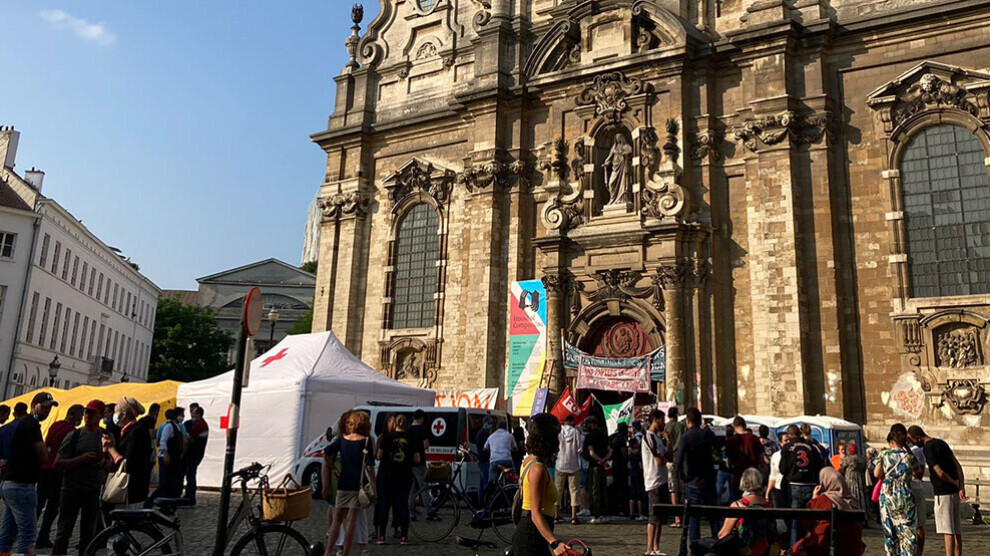Hunger strike of migrants in Brussels temporarily suspended
On Wednesday, the government in Brussels announced a breakthrough in talks with the hunger strikers. The hunger strike was "temporarily suspended" by the migrants.
On Wednesday, the government in Brussels announced a breakthrough in talks with the hunger strikers. The hunger strike was "temporarily suspended" by the migrants.

About 475 paperless migrants, most of them from South Asia and North Africa, have been on hunger strike in Brussels for a residence permit since May 23, 2021. The illegalized migrants had lost their informal jobs due to the pandemic, they have been living and working in Belgium for years. After months of ignorance by the Belgian government, the resistance escalated on Friday when more than 300 of the hunger strikers went on thirst strike. On Wednesday, the Belgian government announced it had worked out a deal with the strikers. The leader of Prime Minister Alexander De Croo's Liberal Party, Egbert Lachaer, said that based on the agreements reached, the cases of the strikers will be examined individually in a neutral zone, "without peer pressure and without putting lives at risk." The strikers welcomed that the government had extended "a helping hand." Accordingly, it was proposed that people present their "exceptional circumstances" - as well as, in the case of a few, "the possibility of international protection" - to the authorities.
Hunger strike "temporarily suspended”
The hunger strike was suspended and several of the migrants were brought out of St. Johns Church to cheers after the "deal" was announced. The hunger strikers insist they have received "assurances" from the ministry. However, many doubt the sincerity of the authorities, especially since the "deal" does not represent a departure from the government's position of conducting case-by-case reviews but not allowing a collective solution. Therefore, the hunger strike has not been called off yet, but only "temporarily suspended."
According to official figures, there are about 150,000 undocumented migrants living in Belgium. They are exposed to massive exploitation of their labor and are often put under further economic pressure by extortionate rents.